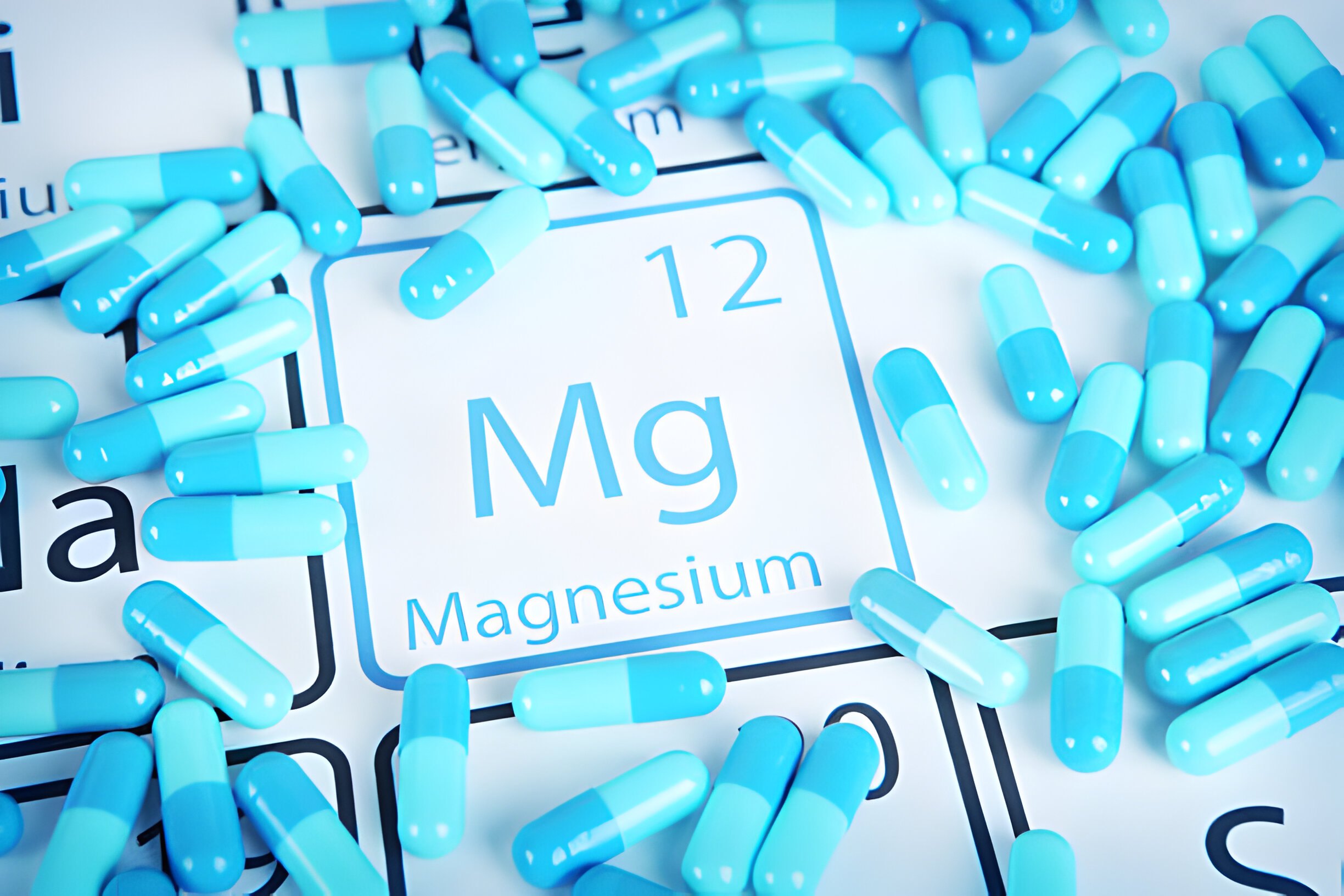Magnesium in Advanced Cardiovascular Life Support

When Advanced Cardiovascular Life Support (ACLS) interventions are performed by healthcare professionals, numerous lives are saved despite complications and threats. With ongoing research and education on this particular field, several new medications and treatments have been introduced. Among which, the usage of Magnesium in Advanced Cardiovascular Life Support has sparked interests in healthcare professionals.
Magnesium Sulfate in extensively used in ACLS interventions as it greatly manages various cardiac arrhythmias. In this blog, we will explore the vital role of magnesium in ACLS practices and training. We will also discuss clinical interventions, mechanism of actions and indications based on evidence based practices.
What is the role of Magnesium in ACLS?
Magnesium is an electrolyte involved in several physiological processes. It plays a significant role in the management of cardiac emergencies within the framework of Advanced Cardiovascular Life Support (ACLS). Its unique properties make it a valuable asset in stabilizing cardiac rhythm. It also supports heart function during critical situations. Let’s explore the specific roles of magnesium in ACLS:
- Antiarrhythmic Properties: Magnesium acts as a natural calcium antagonist, helping to regulate the electrical conduction system of the heart. In ACLS, magnesium is particularly useful in the management of certain cardiac arrhythmias, including torsades de pointes and refractory ventricular fibrillation.
- Suppression of Ventricular Arrhythmias: Magnesium sulfate administration has been shown to effectively suppress ventricular arrhythmias by stabilizing cell membranes and reducing myocardial excitability. This can be crucial in restoring normal cardiac rhythm in patients experiencing life-threatening ventricular tachycardia or fibrillation.
- Adjunctive Therapy: In addition to its direct antiarrhythmic effects, magnesium serves as adjunctive therapy in ACLS protocols, often administered alongside other medications such as amiodarone or lidocaine. This combination therapy aims to optimize the management of cardiac rhythm disturbances and improve patient outcomes.
- Cardioprotective Effects: Beyond its role in arrhythmia management, magnesium exhibits cardioprotective properties, potentially reducing the risk of myocardial ischemia and reperfusion injury during cardiac resuscitation efforts. This aspect is particularly relevant in the context of ACLS interventions aimed at restoring circulation and perfusion to vital organs.
- Optimizing Electrolyte Balance: Maintaining adequate magnesium levels is essential for preserving normal cardiac function and preventing arrhythmias. In ACLS, careful monitoring of electrolyte imbalances, including magnesium deficiency, is crucial, and supplementation may be necessary to correct deficiencies and optimize patient outcomes.
- Individualized Therapy: The administration of magnesium in ACLS is guided by patient-specific factors, including the underlying cardiac rhythm disturbance, serum magnesium levels, and overall clinical condition. Tailoring therapy to each patient’s needs ensures optimal efficacy and safety in managing cardiac emergencies.
Read More: Importance of PALS Certification: An Introduction to Online Learning
When to use Magnesium in Cardiac Arrest?
To effectively use Magnesium in cardiac arrest intervention, it is important to take necessary online training courses. Below mentioned are the instances when Magnesium can be used.
- Torsades de Pointes (TdP): Magnesium sulfate is a first-line therapy for managing Torsades de Pointes, a polymorphic ventricular tachycardia characterized by a distinctive twisting pattern on electrocardiogram (ECG). In cases where TdP is suspected or confirmed during cardiac arrest, prompt administration of magnesium can help stabilize cardiac rhythm and prevent progression to more lethal arrhythmias.
- Refractory Ventricular Fibrillation (VF): In instances of refractory ventricular fibrillation, where standard defibrillation measures fail to restore normal cardiac rhythm, magnesium may be considered as an adjunctive therapy. Its antiarrhythmic properties can help suppress ventricular arrhythmias and enhance the effectiveness of defibrillation efforts.
- Hypomagnesemia: In patients with known or suspected hypomagnesemia (low serum magnesium levels), magnesium supplementation is indicated to correct electrolyte imbalances and optimize cardiac function. Hypomagnesemia can predispose individuals to cardiac arrhythmias, including those precipitating cardiac arrest, making prompt magnesium administration essential in these cases.
- Myocardial Ischemia/Infarction: Magnesium may also be beneficial in the setting of acute myocardial ischemia or infarction during cardiac arrest. Its cardioprotective effects, including vasodilation and anti-inflammatory properties, may help mitigate myocardial injury and improve outcomes in patients experiencing ischemic events.
- Pulseless Electrical Activity (PEA): Although the role of magnesium in pulseless electrical activity (PEA) remains controversial, some guidelines suggest considering its use in specific situations, such as suspected hypomagnesemia or when TdP is suspected as an underlying cause of PEA.
- As Part of ACLS Protocols: Magnesium administration is integrated into ACLS algorithms as part of the overall management strategy for cardiac arrest. Healthcare providers should adhere to ACLS guidelines and consider magnesium therapy based on the specific rhythm disturbances, underlying etiology, and individual patient factors.
Conclusion
Magnesium in Advanced Cardiovascular Life Support offers valuable therapeutic benefits. It manages certain cardiac arrhythmias and optimizes cardiac function. Its antiarrhythmic properties, cardioprotective effects, and role in correcting electrolyte imbalances underscore its importance in resuscitation efforts.
The use of magnesium should be guided by ACLS guidelines and individual patient factors. This maximizes its efficacy and minimizes potential adverse effects. A comprehensive understanding of magnesium’s role and appropriate indications ensure its timely and targeted administration. This ultimately contributes to improved patient outcomes in the challenging realm of emergency cardiac care.
Resources
https://www.aclsonline.us/drugs/magnesium-sulfate/#:~:text=Pharmacotherapy%20is%20an%20important%20method,chronotropy%2C%20and%20treating%20cardiac%20arrhythmias.
https://www.sciencedirect.com/science/article/abs/pii/S0300957207005357
https://www.ahajournals.org/doi/10.1161/CIR.0000000000000613
https://www.ahajournals.org/doi/10.1161/cir.0000000000000261
https://www.proacls.com/wiki/acls-pharmacology/magnesium-sulfate/
https://www.proacls.com/wiki/acls-pharmacology/magnesium-sulfate/
https://www.thelancet.com/pdfs/journals/lancet/PIIS0140-6736(05)78390-2.pdf
https://en.wikipedia.org/wiki/Advanced_cardiac_life_support
https://en.wikipedia.org/wiki/Advanced_cardiac_life_support
PALS CERTIFICATION
Author
PALS Certification is a trusted provider of online life support training, offering PALS, BLS, and ACLS certification and renewal courses. Our flexible training programs follow industry guidelines, offer self-paced learning and instant certification, ensuring providers stay compliant, advance their credentials, and deliver high-quality patient care.






